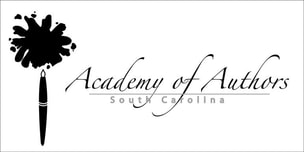John Blake White
John Blake White would likely be remembered as South Carolina’s most prominent antebellum dramatist did he not establish himself as one its foremost painters. Four of his historical paintings, all set in or near South Carolina, hang in the United States Capitol. One of these, Sergeants Jasper and Newton Rescuing American Prisoners from the British, was reproduced on an 1861 Confederate banknote. White also painted portraits of such prominent South Carolina statesmen as John C. Calhoun, Charles C. Pinckney and Henry Middleton, and in 1821 became the first director of the South Carolina Academy of Fine Arts.
White began his career as a playwright in 1806 with his first two plays, Foscari, or the Venetian Exile and The Mysteries of the Castle, both of which were performed at the Charleston Theatre and proved popular enough to warrant publication. The former, a romantic tragedy in blank verse, tells the story of a young Italian nobleman falsely accused of murder; the latter is a Gothic revenge intrigue complete with secret passages and a ghost.
Thereafter, White would turn his attention to less sensational but more immediate domestic concerns. Modern Honor (1812, also at the Charleston Theatre) is the only play of the post-colonial period to address the problem of dueling— then a timely topic in Charleston. His next play, The Triumph of Liberty, or Louisiana Preserved, (unproduced, published 1819) celebrates Andrew Jackson’s victory at the Battle of New Orleans and defends his controversial involvement in the first Seminole War. And his last play, The Forgers, (unproduced, published 1837), predicts a wave of popular temperance plays. It describes the dissipation of its young protagonist, Mourdant, his subsequent delirium tremens and ultimately his suicide by poison he believes is liquor.
White’s interest in social or political causes is unsurprising given his background. He was born on September 2, 1781, at Whitehall Plantation in Eutaw Springs— the same week and site as the last major battle of the Revolutionary War in South Carolina. His parents both served in the revolution—his father at Fort Moultrie, his mother as a spy. He was admitted to the bar in 1808 and was thereafter elected to the state general assembly as a social reformer. He would speak, for instance, against capital punishment and included an essay titled “The Dungeon and the Gallows” in The Charleston Book, edited by William Gilmore Simms.
White married twice, fathered twelve children, and died on August 24, 1859. He is buried at St. Philip’s Church in Charleston.
-- John Tuttle
White began his career as a playwright in 1806 with his first two plays, Foscari, or the Venetian Exile and The Mysteries of the Castle, both of which were performed at the Charleston Theatre and proved popular enough to warrant publication. The former, a romantic tragedy in blank verse, tells the story of a young Italian nobleman falsely accused of murder; the latter is a Gothic revenge intrigue complete with secret passages and a ghost.
Thereafter, White would turn his attention to less sensational but more immediate domestic concerns. Modern Honor (1812, also at the Charleston Theatre) is the only play of the post-colonial period to address the problem of dueling— then a timely topic in Charleston. His next play, The Triumph of Liberty, or Louisiana Preserved, (unproduced, published 1819) celebrates Andrew Jackson’s victory at the Battle of New Orleans and defends his controversial involvement in the first Seminole War. And his last play, The Forgers, (unproduced, published 1837), predicts a wave of popular temperance plays. It describes the dissipation of its young protagonist, Mourdant, his subsequent delirium tremens and ultimately his suicide by poison he believes is liquor.
White’s interest in social or political causes is unsurprising given his background. He was born on September 2, 1781, at Whitehall Plantation in Eutaw Springs— the same week and site as the last major battle of the Revolutionary War in South Carolina. His parents both served in the revolution—his father at Fort Moultrie, his mother as a spy. He was admitted to the bar in 1808 and was thereafter elected to the state general assembly as a social reformer. He would speak, for instance, against capital punishment and included an essay titled “The Dungeon and the Gallows” in The Charleston Book, edited by William Gilmore Simms.
White married twice, fathered twelve children, and died on August 24, 1859. He is buried at St. Philip’s Church in Charleston.
-- John Tuttle
